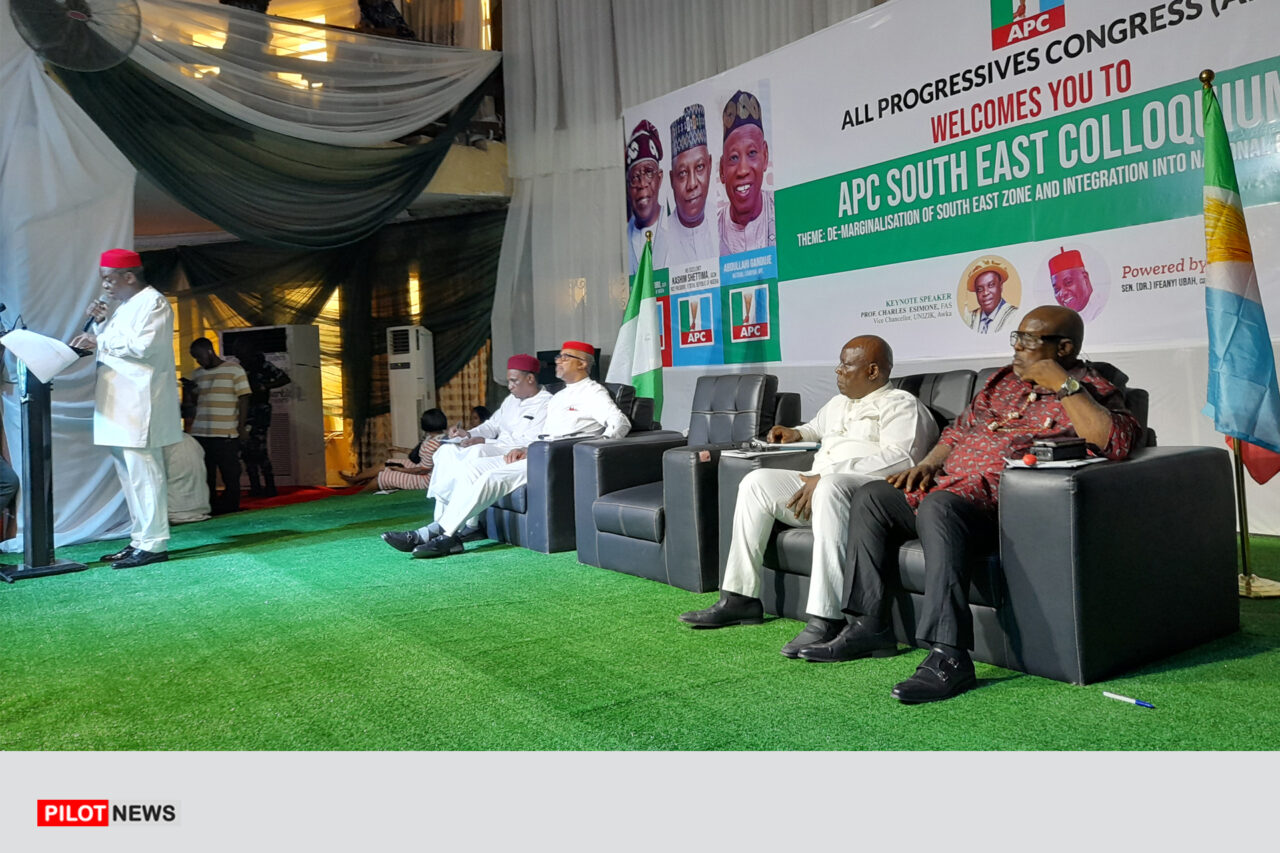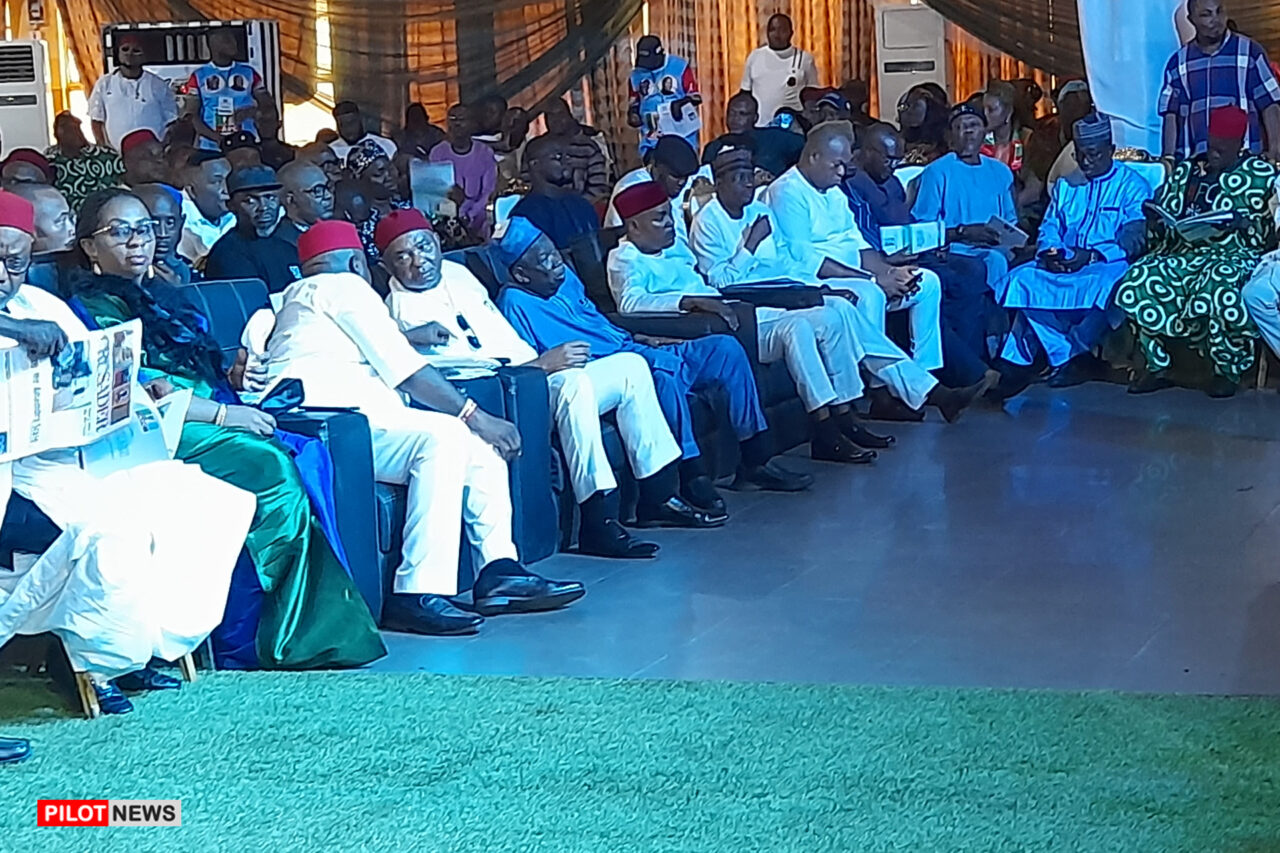The senator representing Anambra South senatorial zone, Dr. Ifeanyi Ubah, has successfully convened a Southeast colloquium to deliberate on arguments around the marginalization of the Southeast. This event which was held on Friday, 22nd March 2024, and effectively the first of its kind, as it is the first time a serving public officer from the Southeast, and in a ruling national political party, is raising conversation on the age-long accusations of Igbo marginalization. It is further symbolic to the effect that with this, it does appear that the question of Igbo marginalization is now being mainstreamed. Another important aspect of this event is that it was conducted in the presence of other Nigerians. So, it is a departure from the previous approach where Igbo leaders gather to talk about Igbo challenges all by themselves.

This time around, it happened in the presence of Alhaji Abdullahi Umar Ganduje, former two term governor of Kano State and the National Chairman of the ruling All Progressives Congress- APC. The leader of Kano Elders Council, and other national and regional leaders in Nigeria. Several National Working Committee – NWC members of the APC from across the Southeast and beyond, were in attendance. The Governor of Imo State, and Chairman of the Southeast Governors’ Forum, Sen. Hope Uzodimma, was also in attendance. On Saturday, during the empowerment, the Deputy Governor of Ebonyi State, Patricia Obila, represented Ebonyi State Governor, Rt. Hon. Francis Nwifuru. The Director General of Southeast Governors’ Forum, Sen. Uche Ekwunife, was equally in attendance. The colloquium was moderated by Prof. Jerry Ugokwe and in the panel were Prof. Nick Ezeh, Prof. Victor Ukaogo and Dr. Nkem Okeke, Anambra’s former Deputy Governor. So, for two days, senator Ifeanyi Ubah played host to these critical national political figures, in what is a testament to his own prime position in the scheme of things within his new party, the APC.


First of all, it is noteworthy to observe that contrary to many misinterpretations that the APC is not accepted in the Southeast, the party is now in the majority in the Southeast zone. As of today, the APC with two states in the zone, is the majority political party in the Southeast. This is important because, a lot of people have continued to advance the false narrative that the Southeast do not like the APC and cannot vote for the party. But the reality on the ground is the exact opposite of this unfounded assumption. This ongoing political integration of the zone is critical in any serious conversation around the future of the Southeast in Nigeria’s politics. So, in a way, the colloquium is both a reminder of the direction that the Southeast must go in its best interest, and a knick-knack that the Southeast has commenced that journey and should remain on that path.
The keynote speaker at the event, Prof. Charles Esimone, the Vice Chancellor of Nnamdi Azikiwe University, Awka, did justice to theme of the Colloquium; “De-marginalization of Southeast Zone and Integration into National politics.” In his detailed presentation, Prof. Esimone referred to marginalization as “denial of access to mainstream economics or politics.” Moving on, Esimone asked rhetorically, “is the Southeast marginalised?” This he then followed by another question, “Who is marginalizing the Southeast?” This interesting conversation then went on to identify the constitution of Nigeria as a source of Southeast marginalization. The keynote speaker also referenced the imbalance in National Assembly seats and number of local government councils as pointers to political marginalization of the Southeast. However, he cautioned that “others are not entirely to be blamed for our political marginalization”, Prof. Esimone said.
The other important aspect of the conversation is whether having a president of Nigeria of Igbo extraction can end political marginalization of Igbo group, to which he raised his doubts. In the final analysis, Prof. Esimone admonished that “If we don’t align and realign, properly, this journey will take us longer than expected.” According to Esimone, Southeast must begin and strengthen “deliberate handshake across the Niger.” This he said while commending efforts of Governor Uzodimma and Sen. Ubah, among others, in that direction.
This well attended colloquium signposts a watershed to a new kind of conversation on the subject matter of Igbo marginalization. Even more, the significance is that Sen. Ifeanyi Ubah has now raised the bar by creating a conducive atmosphere to freely discuss the unsettling matter of Igbo marginalization not only in the midst of other Nigerians, but in the midst of Nigerians with significant influence power and wherewithal to do something towards changing the marginalization narrative. This is therefore relevant to national unity and progress.
More importantly, the Southeast solidarity to this cause from Governor Hope Uzodimma, Governor Francis Nwifuru, APC NWC members from the Southeast, the APC leadership in Anambra State among others, speaks to a united APC that is capable of extending its stake in the Southeast geo-political zone. As of now, based on unambiguous indices, no other political party in the entire Nigeria is more strategically positioned to taking over the Southeast than the APC, with its new followership and the growing elite consensus in favour of the party in Anambra State and across the zone. More so, it is evident that the Federal Government and the APC national leadership, are interested in a political partnership with the Southeast. This will be consequential on Southeast politics and election ahead.
- World Immunization Week: Medical Practitioners, Others, Speak on the Benefits of Immunization - April 25, 2024
- Insecurity in Anambra: “We must focus our gaze within” – Uzu Okagbue - April 25, 2024
- Anambra Schoolgirls Win National ICT Competition - April 25, 2024

